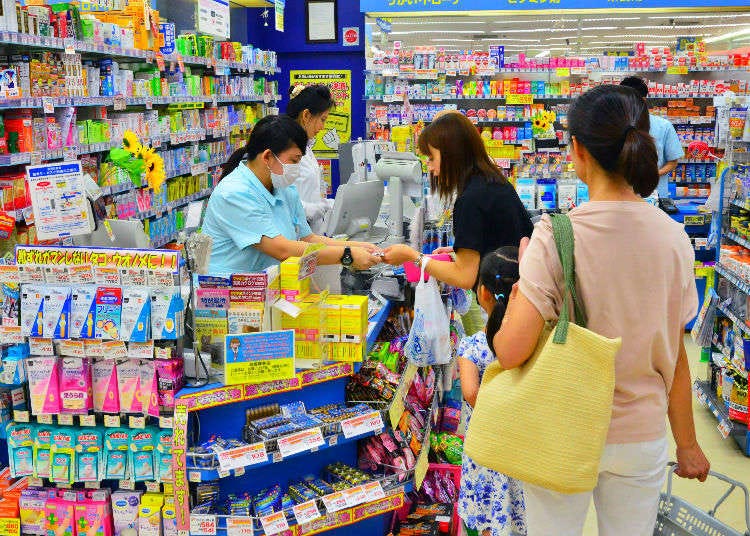
It's interesting how drugstores have become an indispensable part of modern Japanese life, much like the ubiquitous convenience stores. As the name suggests, these shops are fully stocked with essential pharmaceutical products. On top of that, they also allocate shelf space for daily necessities like toiletries and foodstuff, so it's not just medicines and ointments here. This wide selection of goods is why Japan's drugstores have such a strong following among visitors from other Asian countries. In fact, it's not unusual to hear of people coming to Japan with the main purpose of doing drugstore shopping!
The popularity of these stores is growing among Western lands as well. Although relatively smaller in terms of size and product range compared to their counterparts in the United States, Japanese drugstores certainly hold their own when it comes to product quality, pricing, and of course, customer service. Prices can be driven even lower if you take advantage of the tax-free system for overseas visitors. Here's a deeper look at five reasons why you, too, should drop by a drugstore too if you visit Japan!
Reason 1: Quality Products Available at Reasonable Prices
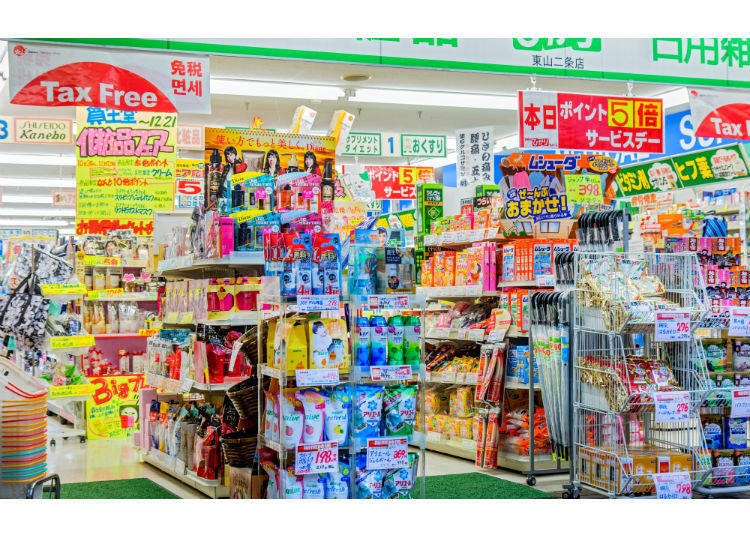
The most prominent characteristic of Japan's drugstores can be summed up in one word: "Value". Products on store shelves can be bought at considerably cheaper prices than at convenience stores or supermarkets. This is believed to be made possible by the following three conditions:
1) Stores can maintain profitability with medicine and cosmetics sales alone
2) Stores can order in bulk due to being part of a chain
3) Most stores are direct distributors that don't have to worry about customer loyalty
As mentioned at the outset, Japan's drugstores sell a variety of other products besides medicine and cosmetics. They can be anything from daily necessities to toiletries, pet food, and even cartoon character merchandise for children. Some shops even go the whole nine yards by offering fresh produce such as meat and vegetables - items that go far beyond the range of what one would reasonably expect a drugstore to provide!
Ironically, drugs are among the least popular items in these drugstores. Low-price toiletries and daily necessities are added to shelves in order to attract customers who may pick up a medicine or two along the way to the counter. Since drugs have the highest profit margins among all their products, the deep discounts on non-drug products are absolutely worth the store's while if they fulfill their purpose as intended. It's rather evident this win-win strategy works great for both the store and its customers!
The most popular drugstores in Japan are mainly chain stores and direct distributor stores. These stores order products in bulk, leading to a much cheaper base cost per item, which results in massive savings for customers as well. This is true even in the case of products that are viewed as high-end goods in other countries.
Take, for example, products by major Japanese cosmetic makers like Shiseido and Kosé. The recent "J-Beauty (Japanese Beauty)" craze in Western lands has made demand for Japanese beauty and cosmetic products shoot up rapidly, predominantly among the female demographic. However, such products are difficult to obtain overseas, and even if they do get imported, they often come at a premium price. Japan's drugstores, on the other hand, are packed with dozens of cosmetic products made in Japan and available at affordable rates. This will result in much more savings than purchasing them from overseas stores. We will delve into more detail about this later.
Reason 2: Acts as the "Town Doctor" Providing Comprehensive Healthcare Support for Customers
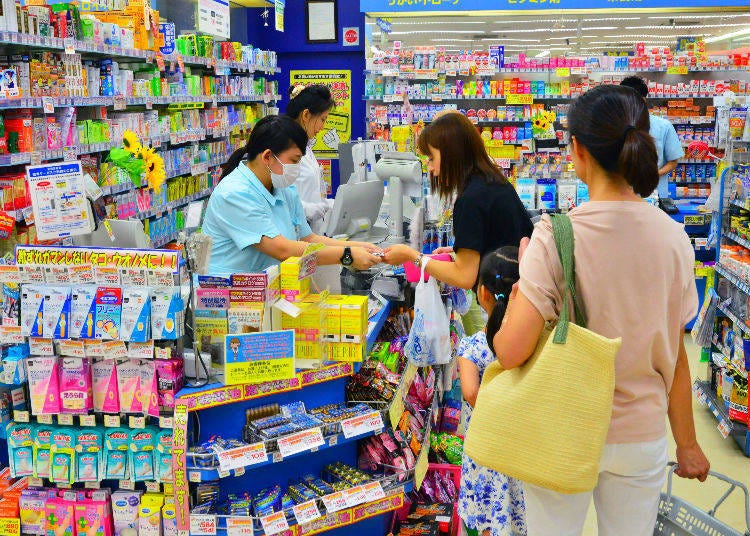
Japan's drugstores are more than discount stores for cheap essentials. There's usually something like a dispensary attached to the shop as well, so the store also functions as a pseudo "town doctor". Many customers in the store may even be there to fill a prescription after being treated by a physician or surgeon. The large selection of over-the-counter medication for internal or external use covers practically all situations. If you're feeling slightly under the weather, the drugstore can have you sorted out in a jiffy.
A word of caution: If you're not sure about the effects of a certain medication but can't read the ingredients label on the packaging, you may want to consider using an app to look up more information about it. "Payke", for example, is a shopping support app tailored for visitors of Japan. Simply snap a photo of the barcode on the packaging and the product information will be displayed in your native language. The app currently supports seven languages, including English, Traditional Chinese, Simplified Chinese, and Korean. It's certainly a reassuring partner to have beside you for your shopping trips in Japan!
Reason 3: Approved Pharmaceutical Products Certified for Safe Usage
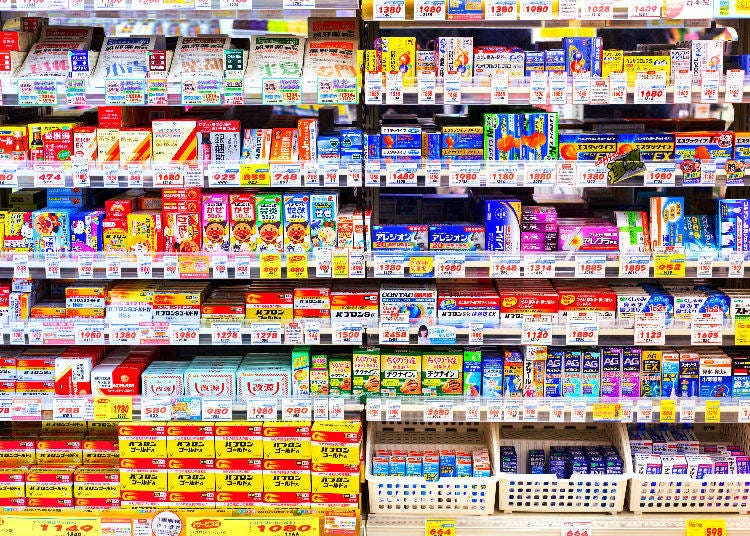
Japan is known internationally for its strict monitoring of unapproved drugs*. That means all pharmaceutical products available on the market are scientifically approved for safe usage, which is why many flock to Japan to seek them out. This is especially so for travelers residing in developing countries, where the standards for drug approval is not as consistent or stringent.
Drugs approved for sale in Japan are guaranteed to be safe for consumption by the country itself.
This guarantee applies not just to ethical drugs prescribed by a physician, but common drugs that can be obtained without a prescription as well. And the ability to easily obtain such quality-assured drugs at a friendly drugstore near you is one of the features of Japanese drugstores that endear them to locals and visitors alike.
You can't mention Japanese pharmaceutical products without bringing up their fastidious packaging. That fancy-looking box there in subdued gold trimmings? Internal medicine. This bottle that's obviously shaped like glitzy jewelry? Eye drops. Packaging designed to look like anything but medication is gaining great popularity among visitors from East Asia such as China, Taiwan, Hong Kong and more.
An editorial staff who was born in Taiwan remarks, "Japanese drugs have the reputation of being highly effective. And because the packaging looks snazzy enough, the people around often don't realize you're taking or applying any medication." Taiwanese women are apparently not fond of the idea of letting the people around them see them taking medication, so being able to bring around medication tastefully disguised by its packaging is a boon and part of the reason why Japanese drugs are so popular among them. It's not hard to see why these safe and reasonably priced pharmaceutical products, packaged stylishly on top of it all, have captured the hearts of so many.
*Referring to drugs that have certain effects certified, but are not yet scientifically approved for safe consumption.
Reason 4: Quality Cosmetic Products Made in Japan Available at Great Value
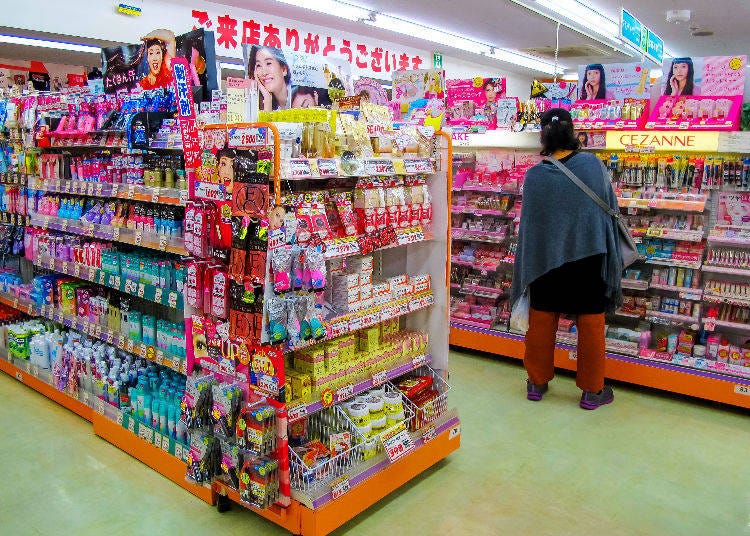
In recent years, "Puchipura", or petit price cosmetics have been all the rage among Japanese young women. This refers to a category of products selling at budget prices without compromising on quality. Major cosmetics makers in Japan noticed this trend and competed fiercely with each other to make quality products available at affordable prices, and their competition continues down till this day. The impression of cosmetics in Japan being low-cost but high-quality has stuck ever since.
You'll still find plenty of Puchipura cosmetics being sold in drugstores, known to be the nearest and easiest place to obtain them for most people. If you're unsure about which one to pick, fret not, for testers and samples are readily available for your experimentation at a store near you. The ability to test the products before settling on your favorite is one of the appeals of buying cosmetics from drugstores as well. And since the store is likely to be filled with brands and items that will never see the light of day in your home country, browsing through the shelves can also feel like a treasure hunt of sorts at times!
*Puchipura: An abbreviation of "puchi puraisu", which is wasei-eigo (pseudo English loanwords) taken from the words "petit" and "price".
Reason 5: Tax-free Shopping - A Perk Only Available to Foreign Visitors of Japan
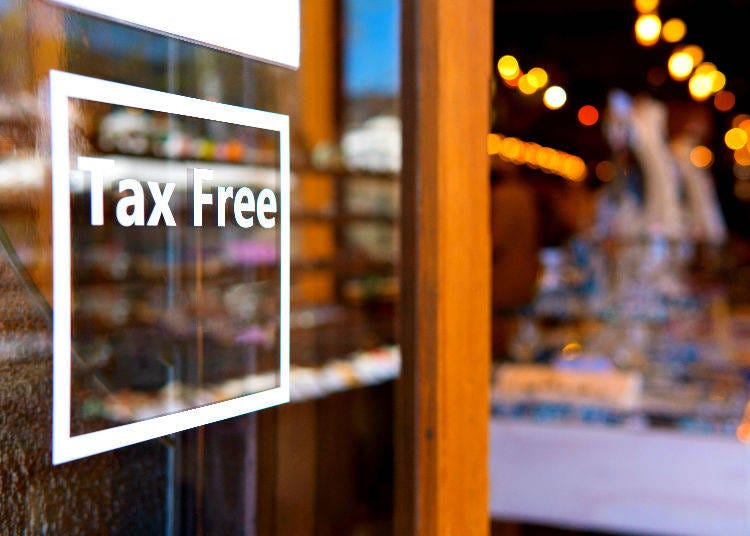
More and more drugstores in Japan are making tax-free shopping available to cater to the increasing interest in their products among foreign visitors. The October 2014 law revision had an especially profound impact. Before the revision, foodstuff, pharmaceutical products, and cosmetics were not covered under the tax-free program. Now, if they meet a few conditions, they will qualify for tax exemption. There are two main categories of tax-free shops in Japan.
1) Duty-free shops: Shops located in international airports. Products bought here are exempted from import duties.
2) Tax-free shops: Drugstores, electronics retailers, etc. Products bought here are exempted from Japan's 8% consumption tax.
As mentioned, drugstores fall under the second category. To reiterate: These stores are where you can buy pharmaceutical products and cosmetics that are "cheap" by Japanese standards at a further discount because of the consumption tax exemption. This perk is only available to foreign visitors and is a major part of the reason Japan has been seeing a rapid increase in the number of tourists. So if you're thinking of heading to a drugstore the next time you visit Japan, be sure to check if that store has a "tax-free" label before stepping in!
*Prices and options mentioned are subject to change.
*Unless stated otherwise, all prices include tax.
Popular Tours & Activitiess
Recommended places for you
-

ISHIDAYA Hanare
Yakiniku
Kobe, Sannomiya, Kitano
-

Jukuseiniku-to Namamottsuarera Nikubaru Italian Nikutaria Sannomiya
Izakaya
Kobe, Sannomiya, Kitano
-

Kambei Sannomiyahonten
Yakiniku
Kobe, Sannomiya, Kitano
-
Goods

Yoshida Gennojo-Roho Kyoto Buddhist Altars
Gift Shops
Nijo Castle, Kyoto Imperial Palace
-
Appealing

Rukku and Uohei
Izakaya
Sapporo / Chitose
-

Kanzenkoshitsuyakinikutabehodai Gyugyu Paradise Sannomiya
Yakiniku
Kobe, Sannomiya, Kitano
-

PokéPark KANTO Is Finally Open! Tokyo's New Pokémon World Starts Before You Even Arrive (2026)
by: Guest Contributor
-
Ad

Japan’s Land of Yokai Monsters and Spooky Stories! A Deep Journey to Mysterious San’in (Tottori & Shimane) for Seasoned Travelers
-

From Haneda to Monchhichi's Hometown! Scenic Monorail Ride & Katsushika 'Old Downtown' Walk
by: Guest Contributor
-
Ad

What Makes Japanese Yakiniku So Darn Good? Guide to Cuts, Heat, and Wagyu Know-How
-
Ad

5 Recommended Wagyu Yakiniku Restaurants in Tokyo: Signature Dishes, Premium Beef, and Secret Sauces
-

Top 3 OSHI MAPs for the Best Matcha and Sweets in Tokyo
by: Guest Contributor
-

Osaka Amazing Pass 2026: Is It Still Worth It After the Price Hike?
-

All About Vintage 'Sukajan' Japanese Souvenir Jackets in Tokyo!
by: Naho Jishikyu
-

Top 3 Photo Spots in Ikebukuro
-

Essential Tokyo: The Complete Guide to Ikebukuro Station
-

Universal Studios Japan: Guide to Osaka's Giant Theme Park Attractions!
by: WESTPLAN
-

14 Hot Gourmet Shops in the New Shibuya Scramble Square: Matcha, Hojicha Sweets & More!
- #best sushi japan
- #what to do in odaiba
- #what to bring to japan
- #new years in tokyo
- #best ramen japan
- #what to buy in ameyoko
- #japanese nail trends
- #things to do japan
- #onsen tattoo friendly tokyo
- #daiso
- #best coffee japan
- #best japanese soft drinks
- #best yakiniku japan
- #japanese fashion culture
- #japanese convenience store snacks












